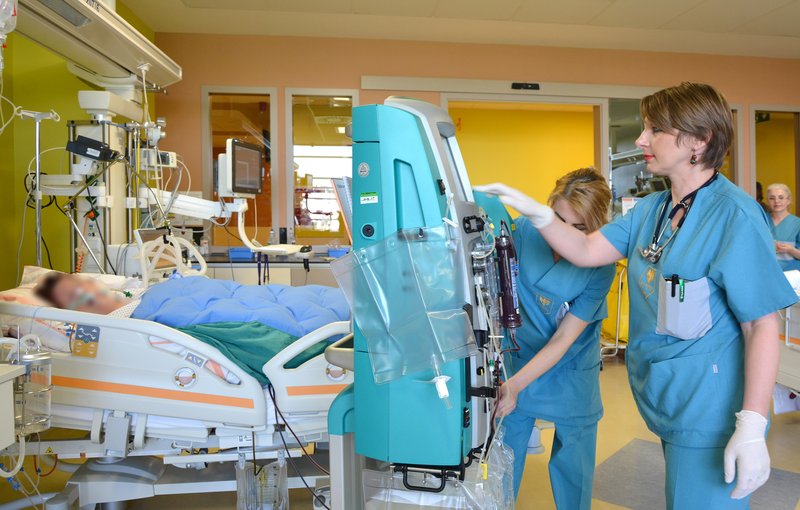 00389 2 3091 484
00389 2 3091 484
Performing Citrate dialysis at “Zan Mitrev” Clinic
May 10, 2019
Citrate dialysis represents dialysis that as a procedure hampers blood clotting or coagulation of blood within the system and during the process citrate solution is being used instead of heparin. While conducting dialysis treatment the patient’s blood exits the body and goes into the dialysis system which filters or dialysable or removes degradation products, excess water, electrolytes, or it will default to the system. This dialysis is being performed by the team of Intensive care and anesthesia in our clinic that have been specialized and trained for all types of treatment with Baxter machines – Prizmaflex by using ST 150 filters and Oxiris filters.
– While blood is in that system it can coagulate and the treatment can be unsuccessful even life threatening. For that purpose, anticoagulant agents must be used. In “common” standard dialysis we usually apply In this case we use citrate solution. Why? Heparin in many cases is contraindicated. There are patients with active bleeding, with HIT (heparin induced thrombocytopenia) patients with different types of coagulopathy, thrombocytopenia of another kind etc. In these patients the use of heparin as an anticoagulant would increase the risk of bleeding. Because of that, this type of dialysis or citrate dialysis is suitable for all categories of patients. Indications for dialysis are the same, anuria, oliguria, hyperkalemia, severe acidosis, acute renal failure, chronic renal failure, severe poisoning, sepsis …and which type of anticoagulant we are going to choose depends on the comorbidity of the patient, explains dr. Dragica Vuckova, anesthesiologist.
The advantage is that this type of dialysis is available to patients who are contraindicated or there is an increased risk of heparin dialysis, adds Dr. Vuckova.







